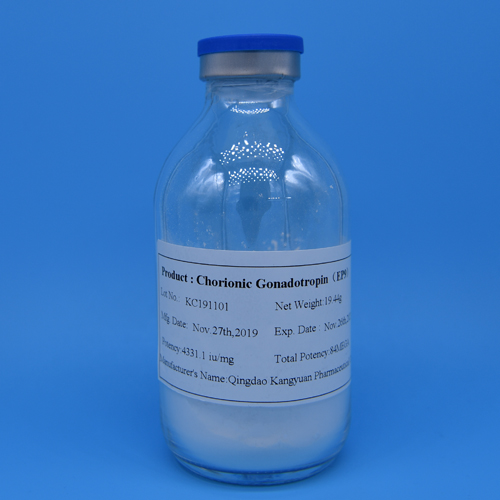Human Chorionic Gonadotropin (HCG) is a hormone that plays various
important roles in the human body. It is primarily known for its role in
pregnancy, but its functions extend beyond that. HCG is produced by the placenta
during pregnancy and has a profound impact on fetal development. However, it
also has other medical applications and is utilized in different contexts.
During pregnancy, HCG plays a crucial role in maintaining the production of
progesterone, which is essential for sustaining the pregnancy. It signals the
ovaries to continue producing progesterone until the placenta takes over this
function. HCG levels are commonly used as a marker to confirm pregnancy, as its
presence in the blood or urine indicates implantation and fetal development.

In addition to its role in pregnancy, HCG is also used in fertility
treatments. In cases of infertility, HCG can stimulate ovulation in women by
triggering the release of eggs from the ovaries. This helps couples struggling
with infertility to increase their chances of conception. It is often used in
conjunction with other fertility medications and procedures to optimize the
chances of successful pregnancy.
Furthermore, HCG has found applications in weight loss and athletic
performance. In certain weight loss programs, HCG is administered alongside a
low-calorie diet. It is believed that HCG can help suppress hunger and promote
fat mobilization, aiding in weight loss. However, the effectiveness of HCG in
this context remains a topic of debate among experts, and further research is
needed to fully understand its impact.
Interestingly, HCG has also been used in the treatment of certain
hormone-related conditions, such as hypogonadism in males. In such cases, HCG
can stimulate the production of testosterone, helping to alleviate symptoms
associated with low testosterone levels. It is also sometimes utilized in the
treatment of boys with delayed puberty.
While HCG offers various medical benefits, it is important to note that its
use should always be under medical supervision. Like any hormone, HCG may have
side effects and should be used in the appropriate dosage and context to ensure
safety and effectiveness. It is crucial to consult with healthcare professionals
for proper guidance and monitoring.
In conclusion, Human Chorionic Gonadotropin (HCG) is a hormone with
multifaceted functions. Although primarily associated with pregnancy, it plays a
vital role in diverse contexts, including fertility treatments, weight loss
regimens, and hormone-related conditions. Its various applications highlight the
versatility of this hormone and its relevance in different fields of medicine.
However, it is crucial to approach HCG use with caution, seeking professional
guidance to ensure its safe and effective use.